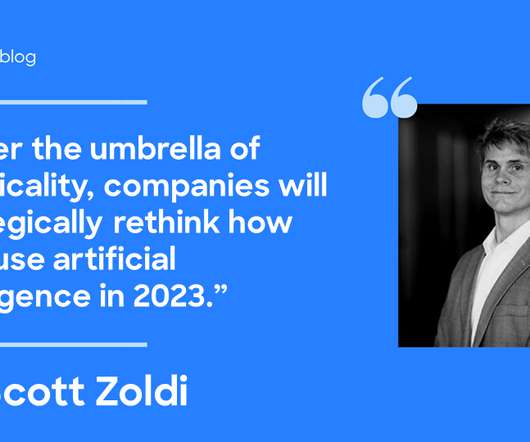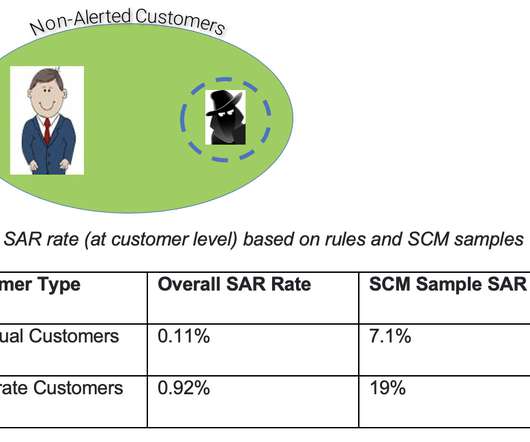4 AI Predictions for 2023: From the Great Correction to Practical AI
FICO
DECEMBER 1, 2022
I believe my AI predictions will allow the Corpus AI to strengthen and flourish during, and far beyond, the Great Correction – in a mature, standardized, auditable and regulation-ready way. Scott is most recently focused on the applications of streaming self-learning analytics for real-time detection of cyber security attacks.














Let's personalize your content